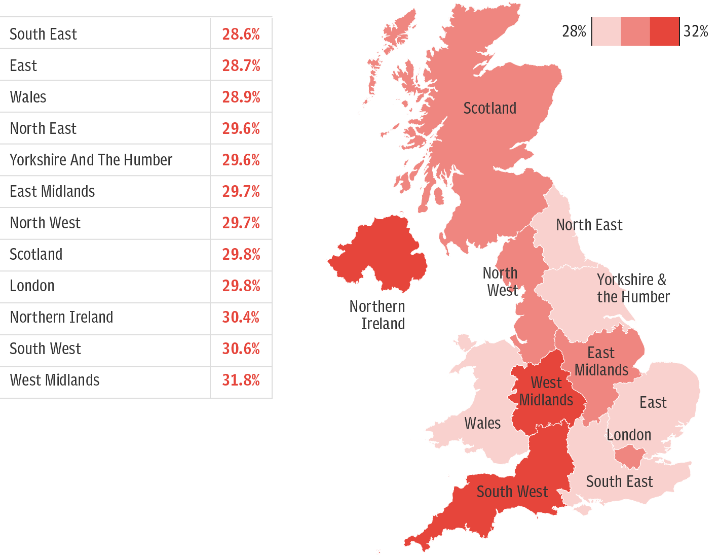Wage subsidy scheme to replace furlough as Rishi Sunak reveals new rescue package


Rishi Sunak will on Thursday announce a replacement for the furlough scheme as part of a new economic rescue package to get the country through six more months of Covid restrictions.
A wage subsidy scheme will top up the pay of people who work at least half their normal hours in an attempt to avoid mass redundancies when the furlough scheme ends next month.
Mr Sunak's November Budget has been postponed until next year because of the current financial turmoil that saw markets plunge after new nationwide coronavirus restrictions were imposed this week.
The Treasury said the new bailout plan would be entirely focused on saving jobs, with an extension of business loans expected to be among the measures unveiled.
Companies intending to make people redundant at the end of furlough must give them notice on October 1, meaning Mr Sunak (watch him explaining why furlough would not be extended in the video below) has days to persuade them to keep their staff.
About three million people are still on the scheme, with some business leaders estimating that one third faced redundancy if there was no extra help.
The Chancellor's announcement comes as Boris Johnson faces a growing backlash from his own MPs over his decision to bring in new restrictions, which he warned would last for six months.
At least one minister threatened to resign and up to 50 Tory MPs were said to be ready to withhold support for the Government's legal extension of its lockdown powers, the subject of a vote in Parliament next week.
In an attempt by Downing Street to find an alternative way forward, Anders Tegnell, Sweden's chief epidemiologist, was reportedly consulted by Number 10 on how his country had avoided a second coronavirus outbreak despite shunning a full lockdown.
Meanwhile, the founder of Pret a Manger and the boss of the Itsu restaurant chain warned that the restrictions (watch Boris Johnson addressing the nation about them in the video below) were having a "devastating" impact on lives and livelihoods, adding: "We have just not begun to touch the seriousness of this."
Government scientific advisers suggested more stringent measures could be just days away as the number of confirmed daily coronavirus cases leapt to 6,178 on Wednesday – a 25 per cent increase on the previous day and just 23 under the record daily number in May.
Mr Johnson promised that Mr Sunak would introduce "creative and imaginative measures" to help workers and employers through the pandemic but, with businesses facing a bleak winter, the Chancellor was left with no choice but to implement new economic rescue measures.
Mr Sunak is expected to announce that, when furlough ends, it will be replaced with a wage top-up scheme for those able to work at least half their contracted hours. He is studying a model under which employers pay 100 per cent for hours worked, with the Government paying a proportion of the remaining full-time wage.
In one example, the Government and employers would share the cost of paying a worker two thirds of their "missing" wages. Employees would have to work at least half their contracted hours to qualify, and a cap was expected on the maximum top-up available.
In talks with the Treasury, business leaders called for targeted support for the worst-hit sectors, including aerospace, aviation, hospitality and retail, meaning Mr Sunak may limit the help to sectors that need it most.
The furlough scheme will not be extended because the Chancellor was determined that people should no longer be paid for not working, sources said. While the scheme cost about £11 billion a month, a top-up scheme would cost £1 billion a month, according to the Institute for Employment Studies.
A total of 9.6 million people (the graphic below shows the percentage of employees on furlough in different areas) have been furloughed since the start of lockdown in March at a cost of £39.3 billion so far.

November's Budget had been cancelled, the Treasury said, because the public expected the Chancellor to "focus on the here and now". However, a Budget must be held before the end of the financial year, and a spending review will still go ahead in the autumn.
A Treasury source said: "Giving people reassurance and businesses the help they need to get through this is uppermost in his mind."
Mr Sunak has been working on contingency plans for a second rescue package since the summer, but has been determined that extra measures should only support jobs that are sustainable in the long term rather than so-called "zombie" jobs that have become unviable.
Other measures considered by the Chancellor include a cut to employers' NI contributions and a limited extension of the business rates holiday for retail, hospitality and leisure firms.
Government sources said there would be no announcement on financial help for sport at this stage, and there was not expected to be anything extra for theatre and the arts in Thursday's statement.


